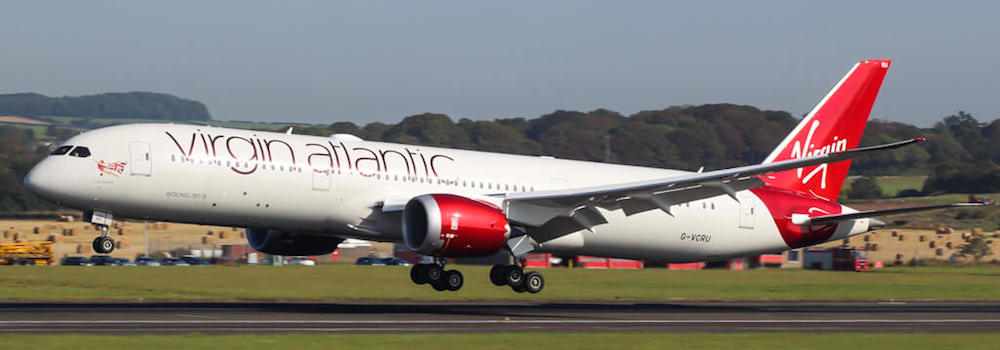Virgin Atlantic finally drops A380 order as production cuts loom

Virgin Atlantic Airways finally canceled its 2001 order for six Airbus SE A380 superjumbo jets after years of putting off deliveries, despite being one of the first customers for the aircraft. It now plans to operate 12 A350-1000s instead. Cancellation was revealed on the same day as Airbus announced A380 production cuts.
The news appeared in Airbus order-and-delivery report for February, published on March 7, 2018. The cancellation was also confirmed by the British carrier.
Virgin placed the order over a decade ago but kept on delaying delivery date as it went on to build its fleet around smaller wide-body jets, such as the A330s.
Virgin Atlantic CEO Craig Kreeger was cited by Bloomberg saying that the A380 was “never really likely to make sense” for the company.
“It was nice having it as an option in case the world changed in a way that it made sense, but I had not seen a real opportunity for us to acquire those airplanes,” he commented.
Kreeger explained that Virgin does not have enough high-volume routes to support a reasonably sized A380 fleet, adding that 10 jets might be closer to the number required to generate real efficiencies.
Brian Summers from Skift observed that “Richard Branson loved the idea of the Airbus A380, and promised his airline would make the aircraft its flagship. But the economics of the airplane don’t work for a carrier like Virgin Atlantic, and within the past few years, it became apparent the carrier would never fly them.”
However, the Virgin Atlantic recently agreed to buy the latest A350 twin-jet model, with 12 A350s set for delivery from early 2019 through 2021, by which point it will have 44 aircraft.
Several other customers have also not followed through with the selected planes. One of those was the Dublin-based aircraft-leasing company Amedeo, which ordered 20 superjumbos but has not taken any after failing to establish a rental market for the model.
Orders, deliveries and cuts
What is interesting, is that the news of cancellation came as Airbus confirmed a reduction in A380 (as well as A400M ) output from 30 aircraft produced in 2012, to just six units per year from 2020 due to a sluggish order intake, according to Bloomberg.
Airbus report states that based on February‘s orders and deliveries activity, its overall backlog of jetliners remaining to be delivered as of February 28, 2018, was 7,243 aircraft in total. This comprises 6,126 from the A320 Family, 308 A330s, 700 A350s, and only 109 A380s.
The report shows the current total orders of the A380 Family at 331, with 222 total deliveries of the aircraft and 222 jets currently in fleets. This aircraft has 13 operators and 17 customers, compared to, for e.g., 123 operators and 119 customers of the A330 Family.
The UAE-based Emirates is the aircraft’s largest customer, with most other operators taking only a dozen jets, give and take, with the intention of making the giant jet the centerpiece of their fleets. As of February 28, 2018, Emirates had 162 orders for the A380 Family jets, 101 deliveries, and had 101 of the jets in its fleet with backlog of 41 aircraft.
Right behind Emirates and the only other major customer is Singapore Airlines with 24 orders, 21 deliveries, and 19 A380s in operation; followed by Qantas Airways with 20 orders, 12 deliveries, and 12 A380s in service.
On February 11, 2018, Emirates also announced 20 firm orders and 16 options of the A380 in a deal worth $16 billion. Deliveries of these will start in 2020, at a production rate of six aircraft annually during the next 10 years. This new order brings Emirates A380 program to 178 aircraft, worth over $60 billion.
The A380, a double-deck, wide-body, four-engine, 550-seat aircraft, is the largest passenger airliner in the world with overall length of 239 feet and height of 79 feet. The aircraft was designed to challenge Boeing’s monopoly in the large-aircraft market, such as its 747 Jumbo jet.
Source – AeroTime

